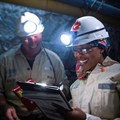A landmark three-year wage agreement has been signed between Seifsa, representing many employers in the metals and engineering sector, and Numsa, the largest trade union in the industry. The agreement, hailed as a testament to the commitment of social partners, was reached in record time and without any industry disruption.

Source: Benjamin Child/Unsplash
This agreement sets out pay rises based on the lowest planned rates of pay for the next three years. Workers in Rate A will get a 6% rise in the first year, and then a 5% rise in the second and third years. Workers in Rate H will get a 7% rise in the first year, and then a 6% rise in the next two years.
The agreement also thinks about bosses who are struggling with money, giving them a special break and a phased-in break. There's a promise to sort out housing for workers in the industry through the Metals and Engineering Industries Benefit Funds.
On top of that, the agreement highlights a joint effort to come up with a plan for industry policy. This plan is aimed at rebuilding public infrastructure and making sure the sector can keep going.
This full agreement aims to balance the needs of workers and bosses while promoting the overall health of the industry.
Seifsa CEO Lucio Trentini praised the trade unions for their commitment and emphasised the importance of negotiating partners putting the interests of the sector and the country first.
Neasa criticises agreement
The National Employers' Association of South Africa (Neasa), representing a smaller portion of employers in the sector, has criticised the agreement.
Neasa CEO Gerhard Papenfus expressed concerns about the agreement's potential impact on job creation and the overall sustainability of the industry.
The association has a few main issues with the agreement. They think the pay rises in the agreement are too much and will stop new jobs from being created in a sector that's already having a tough time because of deindustrialisation.
They also don't like that the agreement is extended to those who didn't sign it, especially as this was made possible by a boss group from a different sector. They think this is not fair and is bad for the industry.
They’re not happy that the agreement keeps up a practice of smaller pay rises for artisans compared to workers with less skills. They believe this is causing a "brain drain" of skilled workers.
Neasa argues that the current collective bargaining structure favours big business and is detrimental to smaller businesses, investment, growth, and survival in the sector.
The association calls for substantial reform to address the economic realities facing South Africa and the metals and engineering sector.
The way forward
While the new wage agreement marks a significant milestone in labour relations in the metals and engineering sector, it is clear that challenges remain.
The differing perspectives of Seifsa and Neasa highlight the complex issues facing the industry and the need for continued dialogue and collaboration among all stakeholders to ensure a sustainable future for the sector.
















































